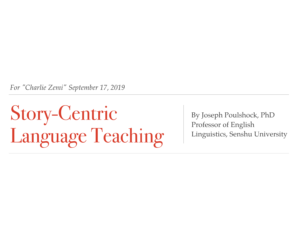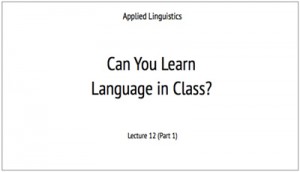Mortimer J. Adler said, “Reading is a basic tool in the living of a good life.” Many English learners work the hard way doing test prep. But their hard study doesn’t always make their lives better. It may even make them suffer. But there is a better way. They can still study for English exams. But they can also balance their lives as they improve their English by reading big. And they can enjoy the many benefits of big reading for the good life. (1) They can enjoy more play and pleasure by reading big; (2) they can get more intelligence and smarts by reading big; (3) and they can grow more happiness and satisfaction — by reading big!
A virtual talk given at the 14th edition of vERtual TALK (October 3, 2020) in association with the Chapter of UIN Raden Intan Lampung, and in collaboration with the Indonesian Extensive Reading Association (IERA) and Extensive Reading Foundation (ERF). Click on the image to download a PDF of the talk.




